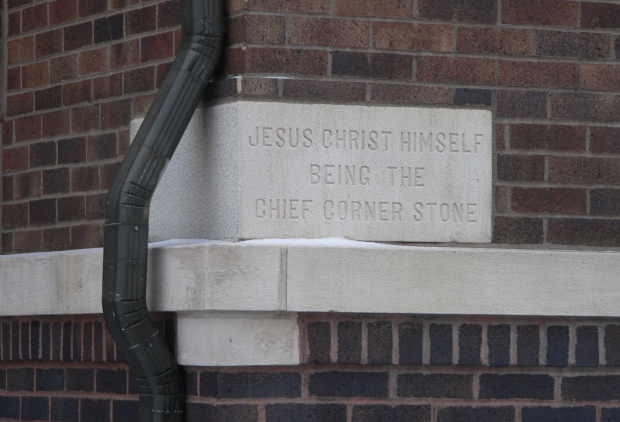 START WITH SCRIPTURE:
START WITH SCRIPTURE:
Psalm 118:1-2, 14-24
CLICK HERE TO READ SCRIPTURE ON BIBLEGATEWAY.COM
OBSERVE:
This selection from Psalm 118 is a song of joy and victory that is appropriate for Easter Sunday, the Day of Resurrection. Obviously, the original context preceded that event by many centuries. (We note that Psalm 118:1-2, 19-29 were featured in our lectionary reading for the Liturgy of the Palms last Sunday, so the verses this week provide some amplification to that theme of joy.)
Scholars tell us that this is the last of six Hallel Psalms (Psalms 113-118), which were Psalms of praise and thanksgiving. It is likely that this Psalm is associated with the Jewish feast of Tabernacles and other Jewish festivals.
This Psalm begins with a liturgical phrase that frequently appears in the Psalms, especially here and in Psalm 136, as well as others. We surmise that this may have been a call and response between the worship leaders (possibly the Levites) and the congregation:
Give thanks to Yahweh, for he is good,
for his loving kindness endures forever.
Let Israel now say
that his loving kindness endures forever.
In the verses from 14 to 24, the Psalmist explores the nature of Yahweh, his blessings, and the response of the grateful congregation.
The Lord is acknowledged as the Psalmist’s strength and song — and the Psalmist then describes a new characteristic that he has begun to experience from the Lord:
he has become my salvation.
He then explores what this salvation means to him — victory, for one thing. In an allusion to the nomadic life of his ancestors, or perhaps to the encampments of a military campaign, he refers to the songs of praise sung in the tents like those used in the feast of Tabernacles:
The voice of rejoicing and salvation is in the tents of the righteous.
“The right hand of Yahweh does valiantly.
The right hand of Yahweh is exalted!
The right hand of Yahweh does valiantly!”
Salvation also means life, not death:
I will not die, but live,
and declare Yah’s works.
Yah has punished me severely,
but he has not given me over to death.
The Psalmist calls for the gates of righteousness to be opened to him — this is likely both literal and figurative, as the congregation is led in procession into the temple. The occasion is the opportunity to give thanks to Yahweh. But it is also clear that there are requirements for those who enter:
This is the gate of Yahweh;
the righteous will enter into it.
The Psalmist again gives thanks that Yahweh has answered his prayer and has become his salvation. And then there is a verse quite familiar to readers of the New Testament:
The stone which the builders rejected has become the head of the corner.
This is Yahweh’s doing.
It is marvelous in our eyes.
The cornerstone was the bondstone at the corner of the foundation of the building. This image is used by some of the prophets as well.
From the Psalmist’s perspective, this metaphor probably suggests that Israel is the cornerstone that was rejected by the Gentiles but has become a great nation through the blessing of the Lord.
However, from a Christian perspective this proverb describes the ministry of Christ — rejected and crucified, he is nonetheless the chief cornerstone, chosen by God and raised to life in order to provide the foundation of a new spiritual temple.
This verse is quoted by Jesus in the three Synoptic Gospels (Matthew 21:42; Mark 12:10; Luke 20:17) as a comment on his parable of the wicked tenants who reject the messengers from the landowner, and then kill his beloved son. Jesus is the cornerstone whom the wicked tenants have rejected.
In the New Testament, the chief cornerstone is clearly identified with Jesus:
So then you are no longer strangers and foreigners, but you are fellow citizens with the saints, and of the household of God, being built on the foundation of the apostles and prophets, Christ Jesus himself being the chief cornerstone (Ephesians 2:19-20).
This selection of the Psalm concludes with an exhortation very appropriate for the observation of Easter Sunday:
This is the day that Yahweh has made.
We will rejoice and be glad in it!
This day, of all days, is a day of rejoicing!
APPLY:
This selection from Psalm 118 is perfect for Easter Sunday, reminding us that God brings life out of death, and hope out of despair.
We are especially reminded that Christ, though rejected, despised and crucified, has been vindicated by his resurrection.
No wonder the early church saw this Psalm as a prophecy of Christ. Jesus himself refers to himself as the stone rejected by the builders who has now become the chief cornerstone. The carpenter’s Son has begun the process of building his church!
RESPOND:
There are so many hymns we sing in church that allude to Christ as our cornerstone and the foundation of our faith.
One of my favorites extols Christ:
Christ is made the sure foundation,
Christ the head and cornerstone;
chosen of the Lord and precious,
binding all the church in one.
Though the historic “temple” of the Christian church has been built with elaborate chambers and columns, arches and domes and spires, metaphorically, by Christians of every denomination and tradition, one thing is certain — they all build upon Christ as the one foundation.
Lord, I rejoice that you are the cornerstone of my faith, and the structure of my life is founded upon you. Amen.
PHOTOS:
“Omaha North Presbyterian Church cornerstone” by Ammodramus is in the public domain.